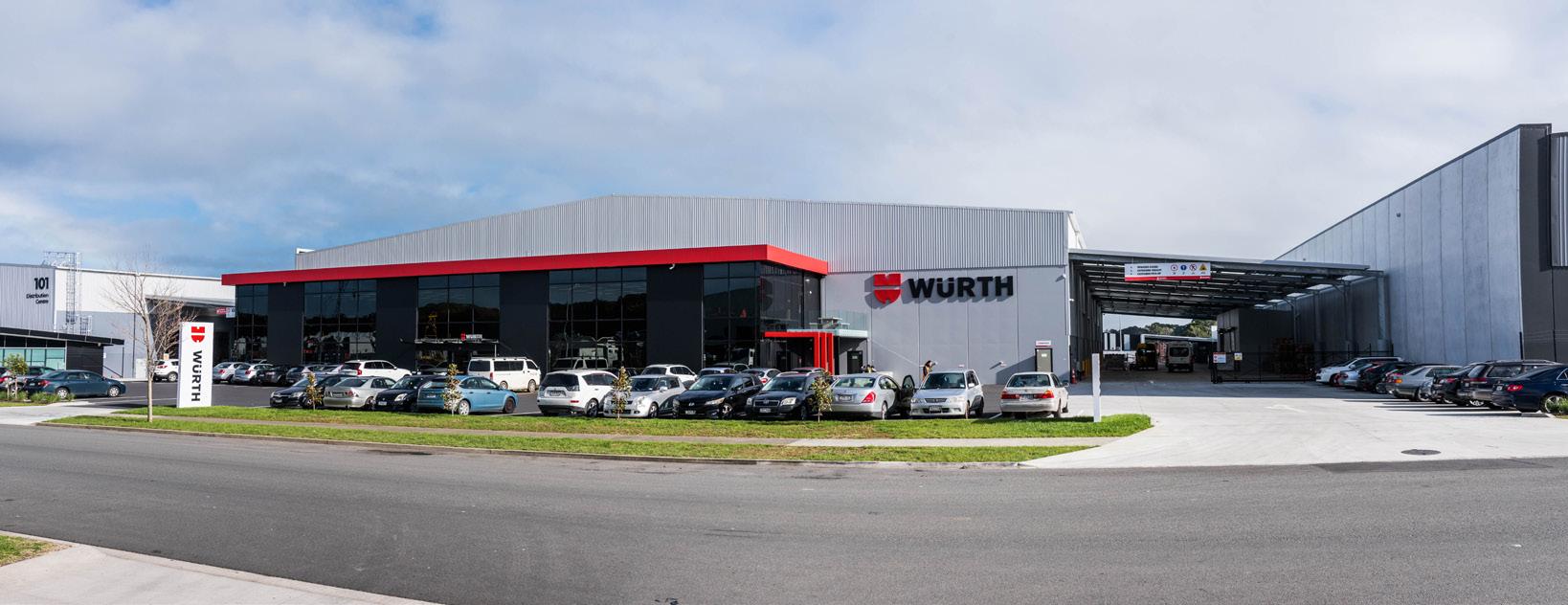
6 minute read
Fuel pain is driving change Cover
from Auto Channel 45
by Via Media
AUTO CHANNEL IS DISTRIBUTED TO 11,306 NEW ZEALAND BUSINESSES ONLINE autochannel.co.nz EMAIL editor@autochannel.co.nz PHONE 09 360 1480 MAIL PO Box 46020, Herne Bay, Auckland 1147
EDITOR Ian Parkes, editor@autochannel.co.nz DESIGNER Henry Khov MEDIA SALES Michael White, michael.white@parkside.co.nz ADVERTISING COORDINATOR Kealy Mathews
Advertisement
AUTO CHANNEL IS PUBLISHED BY
PUBLISHER Greg Vincent, greg.vincent@parkside.co.nz BUSINESS DIRECTOR Michael White, michael.white@parkside.co.nz GENERAL MANAGER Simon Holloway, simon.holloway@parkside.co.nz WORKFLOW MANAGER Emily Khov PRINTING Ovato
NOTICE TO ADVERTISERS
Parkside Media uses due care and diligence in the preparation of this magazine, but is not responsible or liable for any mistakes, misprints, omissions, or typographical errors. Parkside Media prints advertisements provided to the publisher but gives no warranty and makes no representation to the truth, accuracy, or sufficiency of any description, photograph, or statement. Parkside Media accepts no liability for any loss which may be suffered by any person who relies either wholly or in part upon any description, photograph, or statement contained herein. Parkside Media reserves the right to refuse any advertisement for any reason. The views expressed in this magazine are not necessarily those of Parkside Media, the publisher, or editor. All material published, gathered, or created for Auto Channel is copyright 2021 Parkside Media Limited. All rights reserved in all media. No part of this magazine may be reproduced in any form without the express written permission of the publisher.
Auto Channel is the best way to reach the wider automotive industry. The publication is direct mailed to 11,306 New Zealand businesses in the following automotive sectors:
Automotive workshops, parts importers and distributors, transmission specialists, automotive recyclers, towing operators, panel beaters and painters, crash repairers, tyre dealers, suspension and underbody repairers, steering specialists, towing operators, auto-electrical repairers, new- and used-car dealers, air-conditioning repairers, heavy-machinery dealers, trucking and transport. same time the price of diesel had actually gone up over the previous 28 days, from 32.6 cents to an average of $2.27.
Compare this to 2008. Crude oil prices hit more than US$140 a barrel in June 2008, yet the price at the pump peaked at only $1.80 back then — nearly a dollar less than the $2.67 we are paying now, when crude is still only at US$114 a barrel. And that $1.80 spike was enough for the government in 2008 to order a review into fuel prices.
Yes, taxes are a large part of fuel prices — not least because we pay GST on the total price which already includes taxes — but in reality they have increased only slowly (see graph). In the first week of January this year (before the tax reduction) taxes and GST totalled $1.13 and the Emissions Trading Scheme levy was 16 cents. Take off the cut and the tax is now about 88c. Ten years ago those figures were 86c and 1c.
While commentators expect increasing competition will keep a lid on fuel margins locally, it will do nothing to affect the prices charged for the fuel landed in New Zealand.
Yet there was something the government could have done to cushion consumers and that was to prevent the closure of the Marsden Point oil refinery. It was set up precisely for that reason in the 1960s, but its current shareholders have decided the shutdown is the best option for them.
The arrival of the tanker Torm Ingeborg at Marsden Point in March 2022 is the beginning of the end for Refining NZ. Carrying 90782 metric tonnes, it will be the last ship to deliver crude oil here. The shutdown of the refinery, with the loss of more than 100 jobs, was to begin in March.
Marsden Point produced about 40 per cent of our refined product, the remainder being imported. What’s more, various reports have indicated New Zealand could be self-sufficient in oil and gas but the government has already decided to end exploration here in New Zealand. We will soon be completely reliant on the highly volatile international market and operating with as little as five days reserves of refined product.
Minister of Energy Megan Woods said despite global oil uncertainty following Russia’s invasion of Ukraine, the Government was not reconsidering the future of this strategic national asset, a move that the head of the Northern Australia Strategic Policy Centre, Dr John Coyne, called “very naive”.

HITTING HOME
In response to a Consumer NZ poll, about 81 per cent of Kiwis said they were driving less to counter costly fuel prices. The cost of living is now top of the list of their concerns, ahead of Covid and house prices.
ASB Economist Mark Smith expected households to spend an extra $150 per week, on average, on their living costs this year. He also expected household costs to increase 7 per cent this year.
Consumer’s Sentiment Tracker found rising fuel costs were the sixth highest financial concern, up from 11th place in previous quarters.
Kiwis are also now looking much harder at the electric alternatives. Some second-hand dealers have sold out of their EVs and in a press release Hyundai New Zealand said online inquiries and at dealerships had “quadrupled” since the country’s “petrol price turmoil” began.
Hyundai New Zealand general manager Chris Blair said deposits for the New Zealand Car of the Year-winning Ioniq 5 have doubled. Hyundai claims it has a more steady supply of new EV models than some other distributors.




































